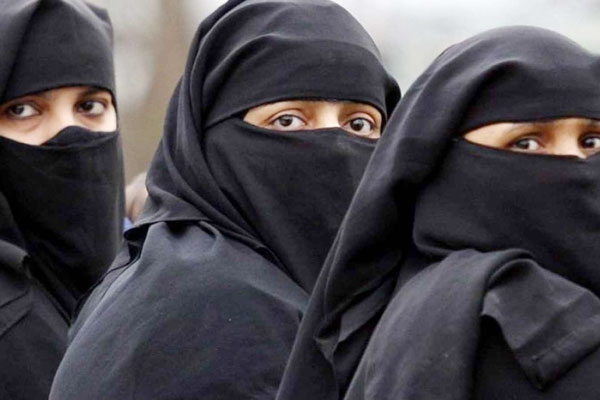
In the midst of darkness that engulfed the world, the divine revelation echoed in the wide desert of Arabia with a fresh, noble and universal message to humanity: “Oh Mankind! Keep your duty to your Lord who created you from a single soul (i.e Adam and from it created its mate (of same kind) and from them twain has spread a multitude of men and women.” (Qur’aan 4:1). Our major objective is to provide a fair evaluation of what Islam contributed (or failed to contribute) toward the restoration of woman’s dignity and rights. In order to achieve this objective, it may be useful to review briefly how women were treated in general in previous civilisations and religions, especially those which preceded Islam (Pre-610 CE).
BY MOULANA ILYAAS MCALAN SA’EED
Describing the status of the Indian woman, Encyclopedia Britannica states:
In India, subjection was a cardinal principle. Day and night must women be held by their protectors in a state of dependence, says Manu. The rule of inheritance was agnatic, that is descent traced through males to the exclusion of females.
A Roman wife was described by an historian as: “A babe, a minor, a ward, a person incapable of doing or acting anything according to her own individual taste, a person continually under the tutelage and guardianship of her husband.” If she married, she and her property passed into the power of her husband. The wife was the purchased property of her husband, and like a slave acquired only for his benefit. A woman could not hold any civil or public office…could not be a witness, surety, tutor, or curator, she could not adopt or be adopted, or make will or contract.
In African and Arabian countries, a woman was just considered as an inferior subject in society. Giving birth to a girl child was regarded as a misfortune and girls were deprived of many opportunities like education, gifts, etc. At the time of marriage, an African girl was given in marriage in exchange for a stipulated number of cows and the husband was asked to pay a certain amount of lobola. Some cultures up to today follow this discriminatory act. In the Arabian peninsula, despite the social acceptance of female infanticide among some Arabian tribes —girls were buried alive and suffered all forms of abuse.
About 1 400 years ago, the Qur’aan liberated girls and women. It forbade this custom, and considered it a crime like any other. Far from saving the girl’s life so that she may later suffer injustice and inequality, Islam requires kind and just treatment for her. Among the sayings of Prophet Muhammad (Peace Be Upon Him) in this regard are the following: “Whosoever has a daughter and he does not bury her alive, does not insult her, and does not favour his son above her, God (Allah) will enter him into Paradise.”
The Qur’aan provides clear-cut evidence that a woman is completely equated with man in the sight of God Almighty in terms of her rights and responsibilities. A woman, according to the Qur’aan is not blamed for Adam’s first mistake. Both were jointly wrong in their disobedience to God, both repented and both were forgiven. In terms of religious obligations, such as the daily prayers, fasting, poor-due and pilgrimage, a woman is no different from a man. In some cases indeed, a woman has certain advantages over man. For example, the woman is exempted from the daily prayers and from fasting during her menstruation and 40 days after childbirth.
- Chamisa under fire over US$120K donation
- Mavhunga puts DeMbare into Chibuku quarterfinals
- Pension funds bet on Cabora Bassa oilfields
- Councils defy govt fire tender directive
Keep Reading
The Qur’aan clearly indicates that marriage is sharing between the two halves of the society, and that its objectives, beside perpetuating human life, are emotional well-being and spiritual harmony. Its basis are love and mercy. According to the Islamic Law, women cannot be forced to marry without their consent. Besides all other provisions for her protection at the time of marriage, it was specifically decreed that a woman has the full right to her dowry, a marriage gift, which is presented to her by her husband and is included in the nuptical contract, and that such ownership does not transfer to her father nor husband. The concept of dowry in Islam is neither an actual or symbolic price for the woman, as was the case in certain cultures, but rather, it is a gift symbolising love and affection.
Islam considered kindness to parents next to the worship of God. Moreover, the Qur’aan has a special recommendation for the good treatment of mothers. A famous saying of The Prophet Muhammad (PBUH) is: “Paradise is at the feet of mothers.” [and] “It is the generous (in character) who is good to women, and it is the wicked who insults them.”
With regard to the woman’s right to seek employment, it should be stated that Islam regards her role in society as a mother and a wife as the most sacred and essential one. Neither maids nor babysitters can possibly take the mother’s place as the educator of an upright, complex-free and carefully-reared children. Such a noble and vital role, which largely shapes the future of nations, cannot be regarded as “idleness”. However, there is no decree in Islam which forbids a woman from seeking employment whenever there is a necessity for it, especially in positions which fit in her nature and in which society needs her most without violating the sacred law of Allah. A woman, on the other hand, is far more secure financially and is far less burdened with any claims on her possessions.
An examination of the inheritance law within the overall framework of the Islamic Law reveals not only justice but also an abundance of compassion for women. Aameen.
Elias McAlan is a Zimbabwean Muslim. Feedback on whatsapp number: +263773704715.











